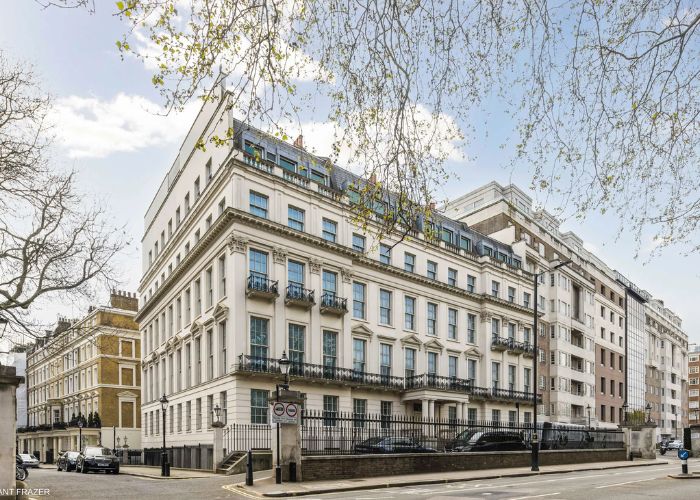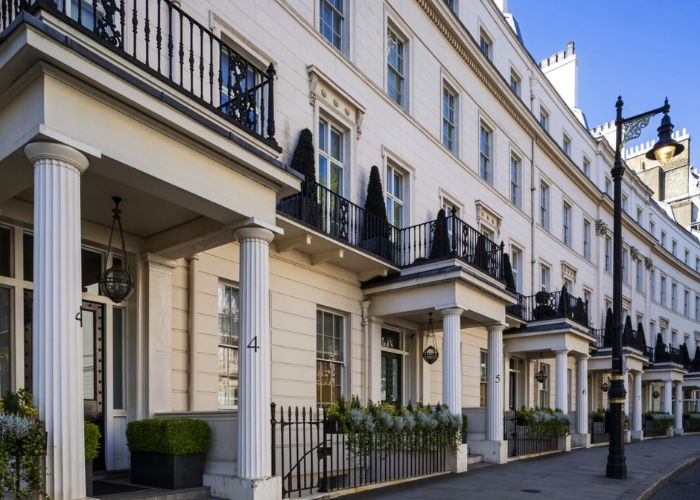As a real estate agent with 7 years of experience selling luxury properties in London, I have witnessed first-hand the struggles that some of the city’s most expensive homes are facing when it comes to finding buyers in today’s market. In this article, I will analyze the key reasons why London’s high-end real estate segment is currently experiencing sluggish sales. Read below about “Why London Most Expensive Homes Are Struggling to Find Buyers?”.
Table of Contents
The Prime London Property Market Slowdown
Over the past few years, there has been a noticeable slowdown in London’s prime property market, which refers to the most desirable and expensive properties in the best locations across the city. According to market reports, prices for luxury homes in central London neighborhoods like Mayfair, Kensington and Knightsbridge have fallen by 20-30% from their 2014 peak. Transaction volumes have also declined sharply, indicating a mismatch between sellers’ asking prices and what buyers are willing to pay.
This slowdown can be attributed to a combination of factors like Brexit uncertainty, tax changes and a weaker international demand. Given that prime London properties are highly sought after by wealthy overseas investors, the Brexit vote introduced a lot of doubt among buyers about the future prospects of owning a home in London. Additionally, higher stamp duty taxes have increased the cost of buying, making these luxury homes less affordable. The weakened currencies and slower economic growth in markets like China, Russia and the Middle East have also reduced foreign investment into London real estate.
The result is a buyer’s market where there is now an oversupply of expensive homes compared to the number of buyers actively looking to purchase. Sellers are having to adjust their expectations in order to attract interest. But in some cases, over-ambitious asking prices are causing certain luxury homes to linger unsold for months or even years.
Why Overpriced Luxury Homes Are Not Selling

One of the key reasons why some of London’s most expensive homes are struggling to find buyers is that they are simply overpriced and do not offer value for money.
During the property boom years, developers and sellers could get away with ambitiously high asking prices that did not always align with the actual value or desirability of the property. But in today’s market, buyers are very discerning and will not pay top dollar without getting true quality worth the price.
In particular, the most common complaint I hear from luxury home buyers in London is that the finishings, fixtures and amenities of some overpriced properties do not match their premium price tags. Many high-end homes still have outdated kitchens, bathrooms, floorings and technology when compared to newly built properties aimed at the ultra-wealthy buyer.
Others may have location issues being situated on busy roads or lacking privacy. Or they may require extensive renovations and customization to suit the tastes of the kinds of wealthy buyers who can afford multi-million pound homes.
When buyers sense that a home is overvalued, they are turned off immediately even if they can afford the inflated price. Savvy high-net-worth individuals conduct thorough due diligence and will not pay more than what they feel a home is truly worth, regardless of the seller’s ambitious expectations.
Lack of ‘Turnkey’ Luxury Homes
Another factor that has led to declining sales of London’s most expensive homes is the lack of truly move-in ready, ‘turnkey’ luxury properties.
The most discerning ultra high-net-worth buyers lead busy lives and expect any home they purchase for millions to be fully finished, furnished and equipped with all the latest amenities they expect in a top-tier luxury residence.
However, London’s market has a shortage of turnkey homes at the highest end. Many expensive properties require extensive work and customization before a buyer can actually move in. Wealthy buyers do not want the hassle and delays of renovations or repairs. They want homes that are good to go from day one with all the lavish fittings and technology installed and ready for enjoyment.
But spec homes of this kind are rare, forcing buyers to take on unwanted extra costs and delays. Or they simply look elsewhere.
This is why I advise my luxury home seller clients to invest in upgrading and customizing their homes to turnkey standards before listing. This increases the chance of securing a buyer willing to pay top dollar for a truly move-in ready elite home.
Limited New-Build Luxury Supply
London’s lack of brand new housing supply at the highest end is another factor constraining luxury home sales.
Due to limited land availability, planning restrictions and high construction costs, very few entirely new ultra-luxury homes and apartments are built each year. Yet this is precisely the kind of modern, amenity-filled housing stock that wealthy international buyers seek when investing millions into London real estate.
The result is intense competition for the handful of new-build ‘trophy homes’ that come onto the market from leading developers like Candy & Candy, Berkeley Homes or Champalimaud. These are snapped up quickly, often via off-market deals. But overall, the shortage of newly built luxury supply makes it harder to match available homes with buyers.
For homes older than 5 years, most buyers look to extensively remodel or customize to bring them up to modern luxury standards anyway. So the shortage of new turnkey options frustrates many buyers and slows sales at the top-end.
Lack of Flexibility on Prices
In a buyer’s market, it is extremely important for luxury home sellers to be flexible and pragmatic on pricing. Homes eventually sell at the price a buyer is willing to pay – not necessarily the initial price listed.
However, some sellers of London’s most expensive homes forego sales by stubbornly sticking to over-optimistic prices and refusing to negotiate. They hold on hoping the market will eventually catch up.
But in a sluggish market, the risks of overpricing are high. It leads to homes sitting unsold for prolonged periods, ultimately selling for lower than if correctly priced from the outset.
As a real estate agent, a key part of my job is counseling luxury sellers on pricing correctly based on market data and trends. While aiming high is understandable, sellers also need to be realistic and willing to negotiate to close sales. Those who recognize the need for pricing flexibility stand a better chance of actually finding buyers.
Limited Financing Options
The prime London property market is driven by cash buyers who do not require financing to purchase multi-million pound homes.
But in recent years, mortgage lending criteria in the UK has become much stricter, especially for high-value home loans. This presents an obstacle to some domestic and international buyers who may require leverage to buy.
Tighter lending regulations have resulted in fewer finance options for luxury home purchases. Buyers have to jump through more hoops to secure jumbo mortgages from banks who are now more risk-averse. This deters some buyers, slowing sales.
As a real estate agent, I try my best to connect appropriate buyers to lenders willing to finance high-end home purchases. But overall, limitations on financing have made it harder for leveraged buyers to compete in London’s luxury market. Cash buyers have an advantage, restricting the pool of prospective buyers for very expensive homes.
Lack of Transaction ‘Momentum’
The London luxury housing market lacks momentum. Sluggish sales of high-end homes perpetuate further weak sales activity.
When transactions stall, it creates a sense of malaise among both buyers and sellers. Buyers take a wait-and-see approach on making purchase decisions. Nervous sellers pull homes off the market if sales are slow.
This vicious cycle further dampens activity and enthusiasm in the prime property market. Some buyers and sellers simply move focus away from London to other cities and property markets globally that are performing better.
As an agent, I try to stimulate momentum by encouraging realistic pricing and creative deal-making between buyers and sellers. But the reality is sales volumes at the high end will remain depressed until the broader factors weighing on the London luxury housing market improve.
Outlook for the Prime London Property Market
In summary, the prime London property market faces a challenging period ahead. Brexit uncertainty, high prices, limited new supply and tight financing will continue posing obstacles to sales of luxury homes over the next 2-3 years.
However, the weak pound has created some bargains for overseas dollar-backed buyers. And London remains a safe haven for wealth preservation with huge long-term appeal.
As a real estate agent, I am advising luxury home sellers to price correctly and maximize their properties’ appeal to buyers. With realistic expectations and the right strategy, deals can still be closed at the high end.
But a broader revival in the prime London property market depends on political and economic factors beyond the control of individual agents and homeowners. Patience and adaptability will be key to navigating the city’s luxury housing segment in the years ahead. I hope you like reading “Why London Most Expensive Homes Are Struggling to Find Buyers?”.

Jamal is the knowledgeable voice behind EDB Travel, bringing over 4 years of experience in travel writing and destination expertise. Holding a degree in Tourism Management, Jamal specializes in showcasing Jamaica’s rich culture, vibrant attractions, and hidden gems. His extensive background and local insights provide readers with valuable tips and in-depth guides to explore Jamaica like a pro. Follow Jamal on Pinterest and Instagram for the latest travel inspirations and updates.

